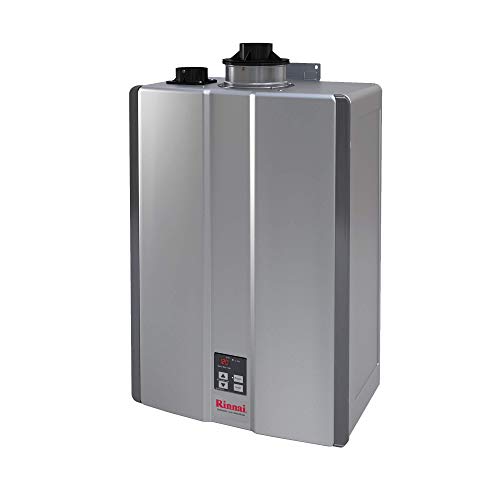One of the cleanest and safest forms of fossil fuel is natural gas. This substance is used in homes to power gas appliances such as stoves and water heaters. Nevertheless, if a gas leak occurs from a home appliance, it can be hazardous, even fatal. Therefore homeowners need to know what to do if an appliance like a hot water heater smells like gas.
How To Tell If Hot Water Heater Is Leaking Gas?
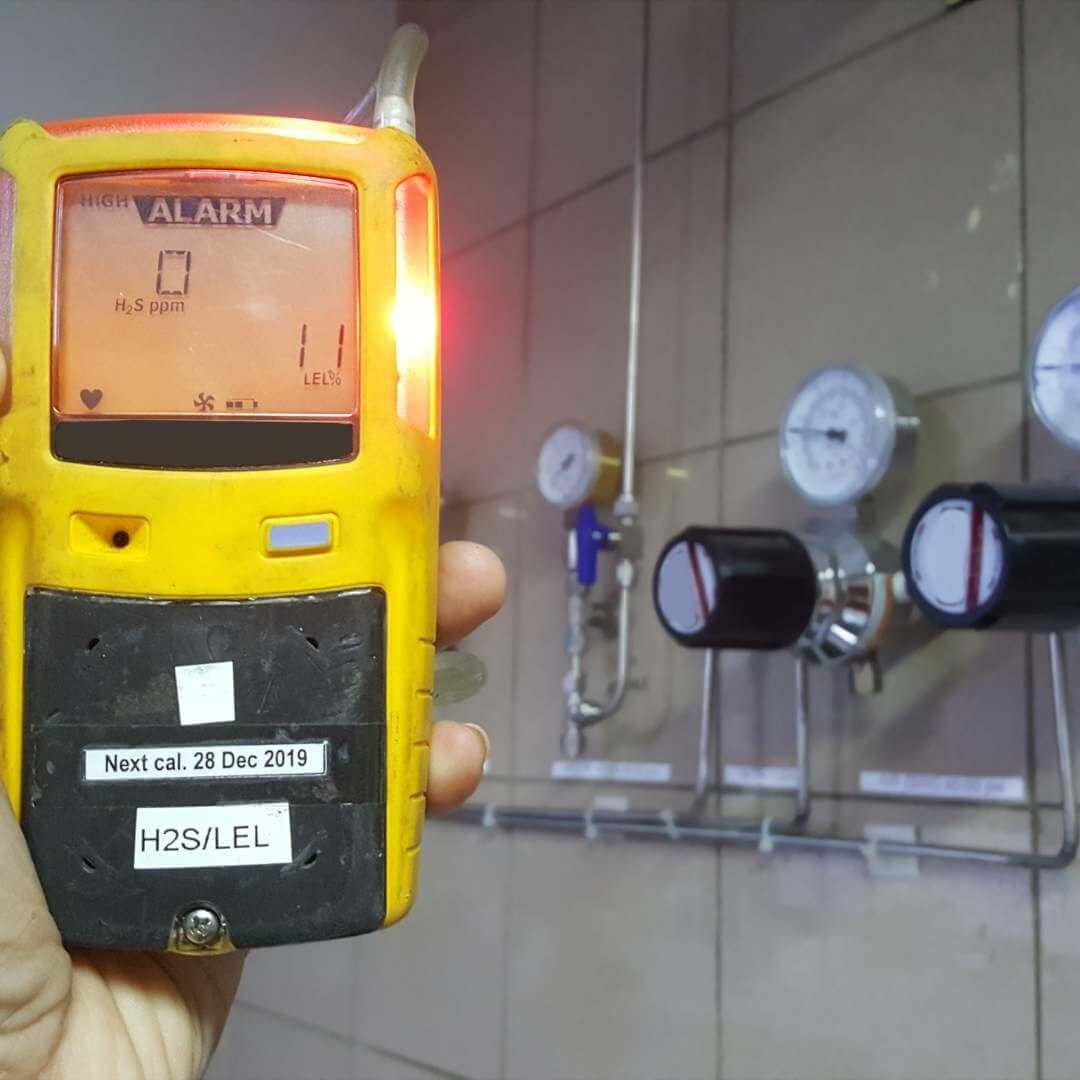
A burning smell from a water heater is easy to smell while a gas leak can be more challenging to detect. Unless you have a gas detector in your home, the only way to tell if you have a gas leak is through sight, sound, and smell.
In general, natural gas is tasteless and odorless. Therefore, manufacturers add a harmless additive called mercaptan to it to make gas leaks possible to smell. This substance has a strong odor which some describe as smelly cabbage, stinky socks, rotten eggs, or sulfur. Keep in mind a strong sulfur smell coming from the water itself might indicate other problems.
In some cases, people would describe the smell around a water heater as a paint thinner odor. This smell too indicates a gas leak or incomplete combustion. [1]
Either way, whether it is rotten or a paint thinner-type odor, it’s a warning sign coming from your water heater. If a hot water heater smells like propane or gas, it’s best to act immediately. [2]
However, if you are uncertain, make sure to inspect for other signs. By knowing the symptoms of a gas leak beforehand, you can easily avoid disaster.
- Hibernation mode with case accessory or...
- Automatic logging of the 35 most recent gas...
- Configuration of high and low alarm set...
Symptoms of gas leak from water heater
Keep in mind that a small gas leak might not have an odor or other physical signs. Nonetheless, take note if you notice the following:
- Paint thinner odor, sulfur and rotten egg smell
- A sound like hissing or whistling near the gas line or water heater.
- Dust clouds or white clouds close around the gas line or water heater.
- Bubbles in the water.
- Damage around the gas pipe connection.
- The houseplants are dead.
- A spike in the gas bill.
- Physical symptoms in humans or pets.
Reasons Why A Gas Leak Is Dangerous?
There are two main reasons why a gas leak is dangerous. The first reason is because it causes a reduction in the amount of oxygen in the air. The lack of oxygen will cause additional symptoms. If there are very high levels of gas in the air it may lead to unconsciousness or even death.
While natural gas is non-toxic in small amounts, it can still cause physical symptoms in humans and pets. It can also lead to carbon monoxide poisoning. [3]
Hence why death by suffocation is possible if the gas leak happens in a confined space.
Therefore if you are not suffering from a separate illness or underlying conditions, specific symptoms might indicate that you have a gas leak. For example, symptoms like headaches, dizziness, nausea, sleepiness, etc. are signs that your water heater might be leaking gas.
The second reason why a water heater gas leak is dangerous is because it is a fire hazard. A small flame can ignite a fire or a massive explosion.
Reasons Why A Water Heater Can Obtain A Gas Leak?
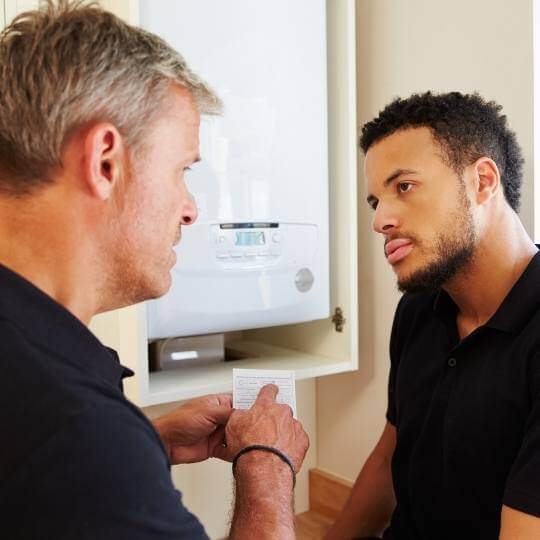
If your hot water heater smells like gas, there are a couple of reasons why this might be occurring.
- The drain valve is loose or missing:
One of the most common causes for water heater gas leaks is a loose drain valve. Not only will a missing or open-drain valve cause water to leak out from the valve, but gas as well.
In such a case, you should make sure to wrench the valve until it fits tight. If you don’t know how to do this, then it’s best to contact a professional as soon as possible.
- The water heater provides too much pressure:
There are a couple of reasons why a water heater can start to provide more pressure than usual. This will further increase a gas leak or even lead to an explosion.
If the water temperature is set higher or the water supply comes in at high pressure, it can become too much for the tank to handle. Thus a gas leak can occur. A professional will have to inspect the problem to make the proper adjustments to ensure the leak stops.
- The storage tank has a crack:
A water heater can leak gas through a crack in the storage tank. This mostly happens in water heaters that are built by a glass-lined storage tank.
When natural minerals in the water start to calcify, the deposits stay inside the tank. This can cause the glass lining to crack. The storage tank will most likely need replacement.
- Some other common reasons:
A water heater that has reached its lifespan can start to give all sorts of problems, including gas leaks. Additionally, improper draining, loose fixtures, and a loose pipe connection can also cause gas leaks.
In most cases if your water heater has passed its lifespan it is best to have a new one installed.
- Discontinued. Please see new model RSC199iN
- Energy and Space Efficient: Space-saving...
- Optimal Water Pressure: Up to 11 GPM hot...
There are many other options on the market, including an electric water heater or a hybrid water heater.
What To Do If Your Hot Water Heater Smells Like Gas?
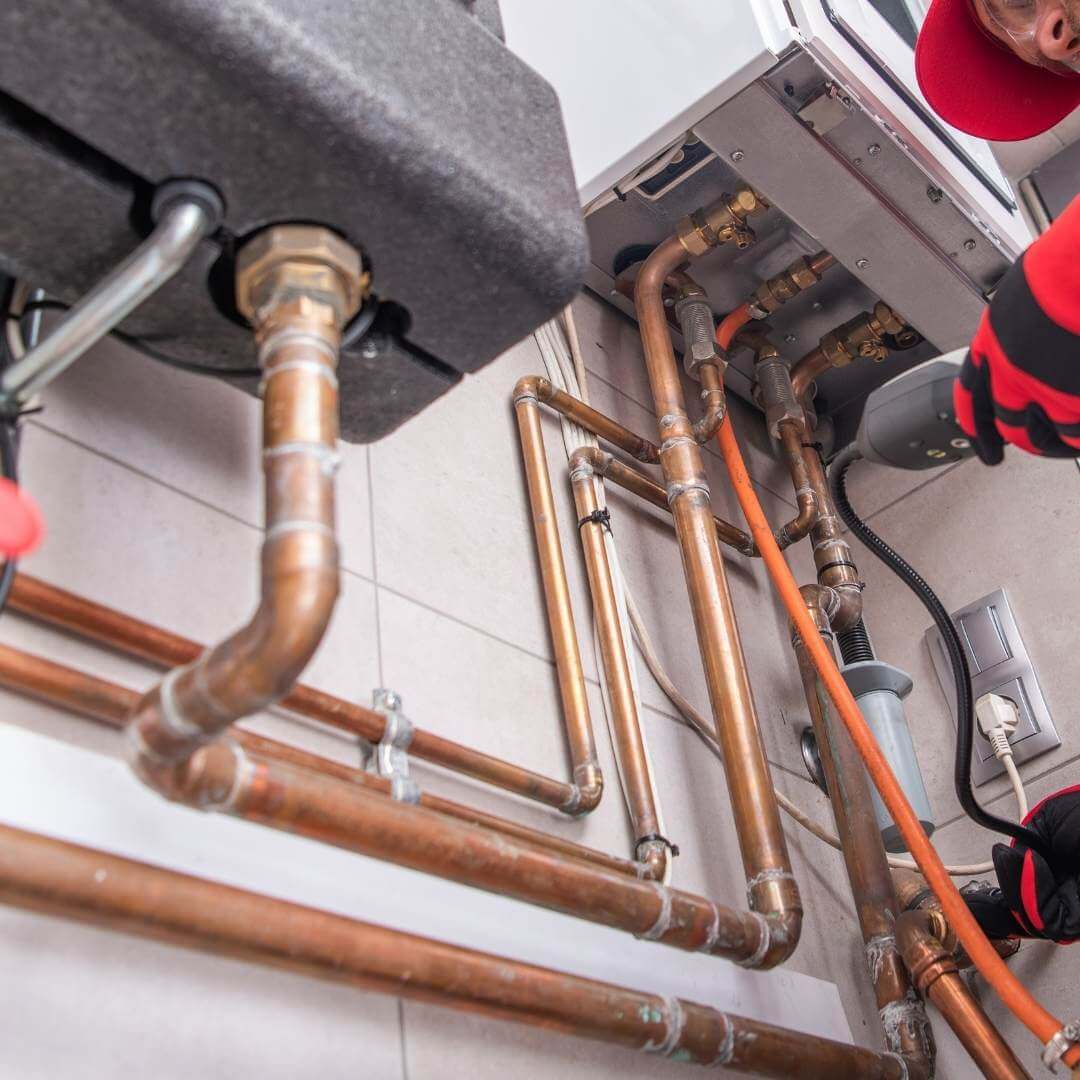
As mentioned before, a gas leak can be a hazardous occurrence in any home. Therefore it is best to have a carbon monoxide or a gas detector in your home. Either way, with or without a sensor, if you suspect a gas leak, make sure to take the following steps.
- Evacuate the area immediately:
If your hot water heater smells like gas mildly, turn off the pilot light of the appliance. Open the windows and leave the house immediately. In the case of a severe gas leak, and you are experiencing symptoms, leave the house immediately!
- Contact a gas company or an emergency service:
Once you are out of the house, away from the yard, and in a safe area, contact an expert. You can contact your local gas supplier or call the emergency service if you are unsure what to do next.
- Things not to do:
If you suspect that your water heater is leaking, do not use any electronics near the suspected leak. It is essential to wait until you are at a safe distance before you use your phone to call. This is because electronics can create static electricity that can ignite gas.
How To Avoid A Water Heater Explosion?
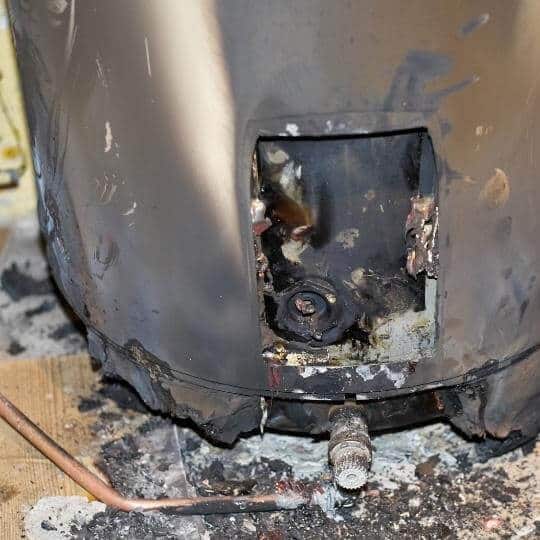
The thought of one’s water heater exploding like a bomb is scary. Therefore homeowners should be aware of how this can happen and how to avoid it. Water heaters can explode or cause a fire in two types of scenarios.
- Gas leak:
The first one is when a gas leak occurs. Even the most minor gas leak around a water heater can cause a catastrophic explosion through an ignition flame. One should avoid using electronics, or a flame in the presence of a gas leak. Even turning on the light is not advised.
- Pressure build-up:
The second scenario that can cause a water heater to explode is when too much pressure builds inside the tank. If the safety valve fails or the heater does not shut off during heating, the pressure will mount into an explosion.
Prevention Tips:
A water heater explosion is not only dangerous, but it can also cause thousands of dollars in damage. Thus it is best to avoid a situation like this through regular maintenance. Here are some things to do to prevent a water heater explosion:
- An annual water heater tune-up:
Have a professional inspect your water heater annually to ensure that its safety mechanisms are working correctly.
- Repairs and installations:
When something is not functioning right, have repairs done immediately. Leave any water heater repairs and installations to a professional to avoid costly problems.
- Inspect the T&P valve:
The temperature and pressure valve is meant to release excess pressure in the water tank.
This valve needs to be tested occasionally by flipping the lever. It should release some water before going back into place. [4]
- Lower the temperature:
It is best if your water heater’s temperature is set between 120-130° F. If it is higher, it can cause scalding burns and cause damage to your water heater. A higher temperature can also encourage gas leaks and pressure-related explosions.
Conclusion
Any time your water heater smells like gas, it signifies that something is not correct.
Even a gas smell after water heater replacement is a cause for concern. It either means that something is not functioning correctly or that it is time to replace the water heater if it’s old.
Maintenance is your best bet to ensure that your water heater is functioning correctly. At the same time, gas leaks and explosions can be prevented if signs of failure are noticed during an inspection.
If you are having your water heater repaired or replaced, it is always best to leave it to a professional. In this way, you can rest assured that everything will be in place and functioning as it should.

Michael Davis is a heating & plumbing expert who currently works as independent contractor in SC. He also writes for Plumbertip.
For almost 10 years he worked on various plumbing tasks across South Carolina.

